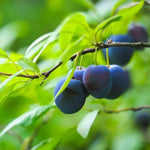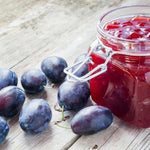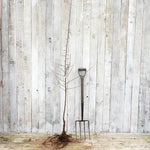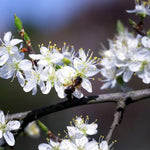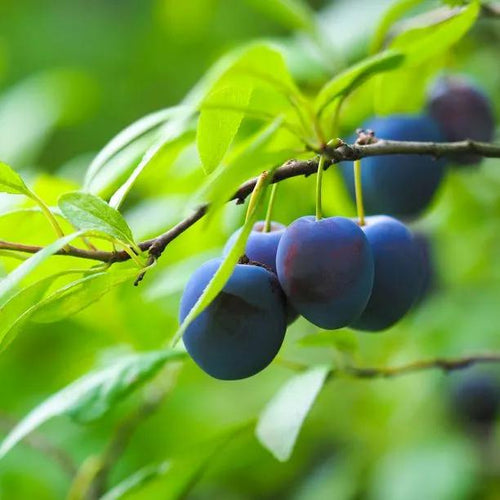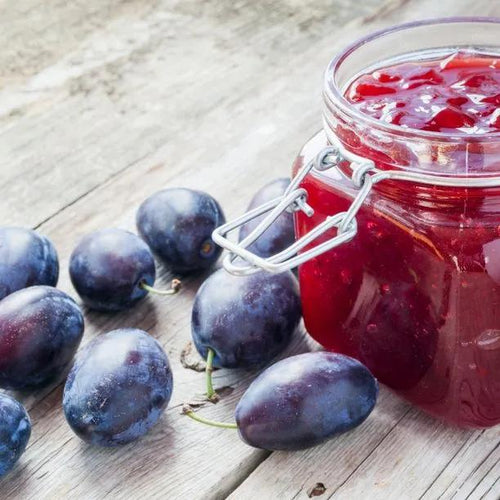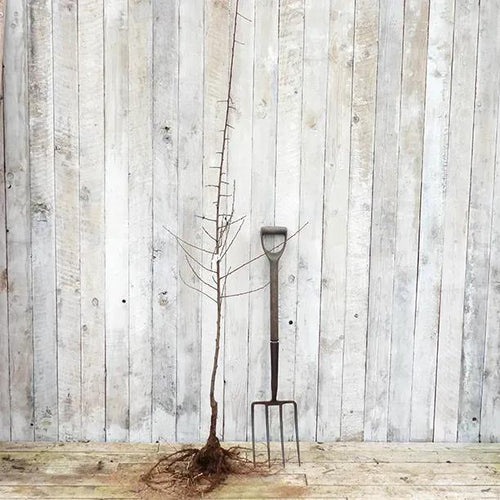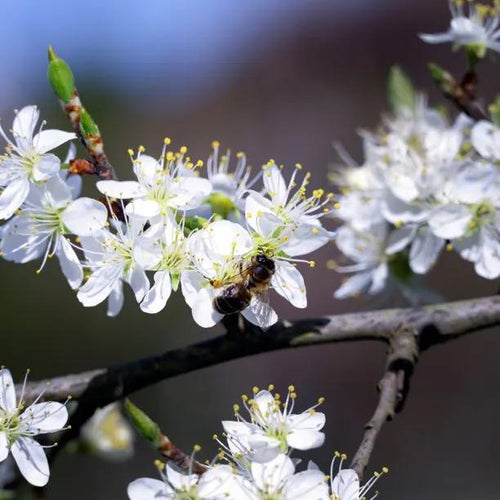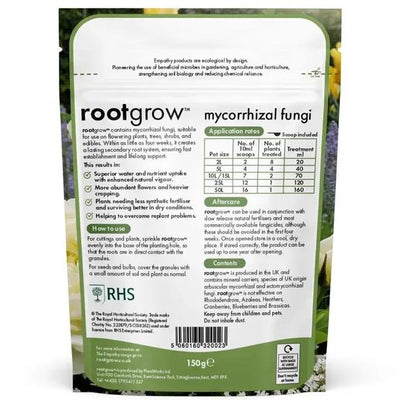 Delivered across the UK
Delivered across the UK Which Best Plant Supplier 2025
Which Best Plant Supplier 2025 1 Year Bareroot Plant Guarantee
1 Year Bareroot Plant Guarantee
About Shropshire Prune Damson Trees
Shropshire Prune Damson Trees
'Shropshire Prune Damson' also known simply as the Prune Damson, it has radiant purple fruit with a seriously astringent flavour when fresh: too much so for most palates, but mouth-wateringly delicious after cooking. It makes incomparable jam or compote and after being dried into a prune, it can be an excellent ingredient in savoury dishes as well. Prune damsons are picked from September onwards and though the crop size isn't as spectacular as from some other damson trees and the fruit are quite small, once tasted a Shropshire Pune damson isn't forgotten. This is a very old English variety, and so you can rely on this tree to thrive in the North; it's also the best of all the damson trees we sell in very damp soil, as long as it's not waterlogged.
Browse our range of plum & damson trees or the full variety of fruit trees.
History & Trivia
The mists of time have swallowed any information about this tree's parents. There is a reference to it from the 1670's, when prunes were a very widely used winter food, naming it as the Shropshire Prune; these days the name Prune Damson is more common. Although there is still some debate, there is a general consensus that damsons are the ancestors of plums and not the other way around. This is supported by strong evidence that damsons were cultivated by humans around 10,000 years ago, making them one of the first domesticated plants.
Pollination guide for Prune Damson
This tree is self-fertile and has no need for a pollination partner. That said, even with a natural self pollinator such as Shropshire Prune, cross-pollination can only improve the quality of the fruit and if you would like a suitable match, we would recommend Dennistons Superb, which also flowers in late April and has a ready to eat sweetness that contrasts very well indeed with the sharp flavour of the damson.
Damsons are much more forgiving than plum trees; they have been in the UK for far longer and are naturally hardier. However, they're similar, need the same treatment and can suffer from the same diseases, in particular silver leaf fungus - always prune stone fruit in summer to reduce the risk of this.












 Secure, One-Tap Checkout
Secure, One-Tap Checkout
 Hand Picked, Delivered to Your Door!
Hand Picked, Delivered to Your Door! 1 Year Bareroot Guarantee
1 Year Bareroot Guarantee